Bookstore owners seek to adapt and thrive in digital age
Writer: Song Yingwen | Editor: Liu Minxia | From: Shenzhen Daily | Updated: 2023-12-01
“Uncertainty is the only certainty there is, and knowing how to live with insecurity is the only security.” This famous quote from U.S. popular public speaker and author John Allen Paulos best describes a common sentiment shared by a panel of bookstore owners and experts in China’s book retail industry at the Bookstore Executives Conference held in Shenzhen on Nov. 17.
Sixty Chinese bookstore owners and managers from 28 cities were invited to the conference, a sideline event of the just concluded the monthlong Shenzhen Reading Month.
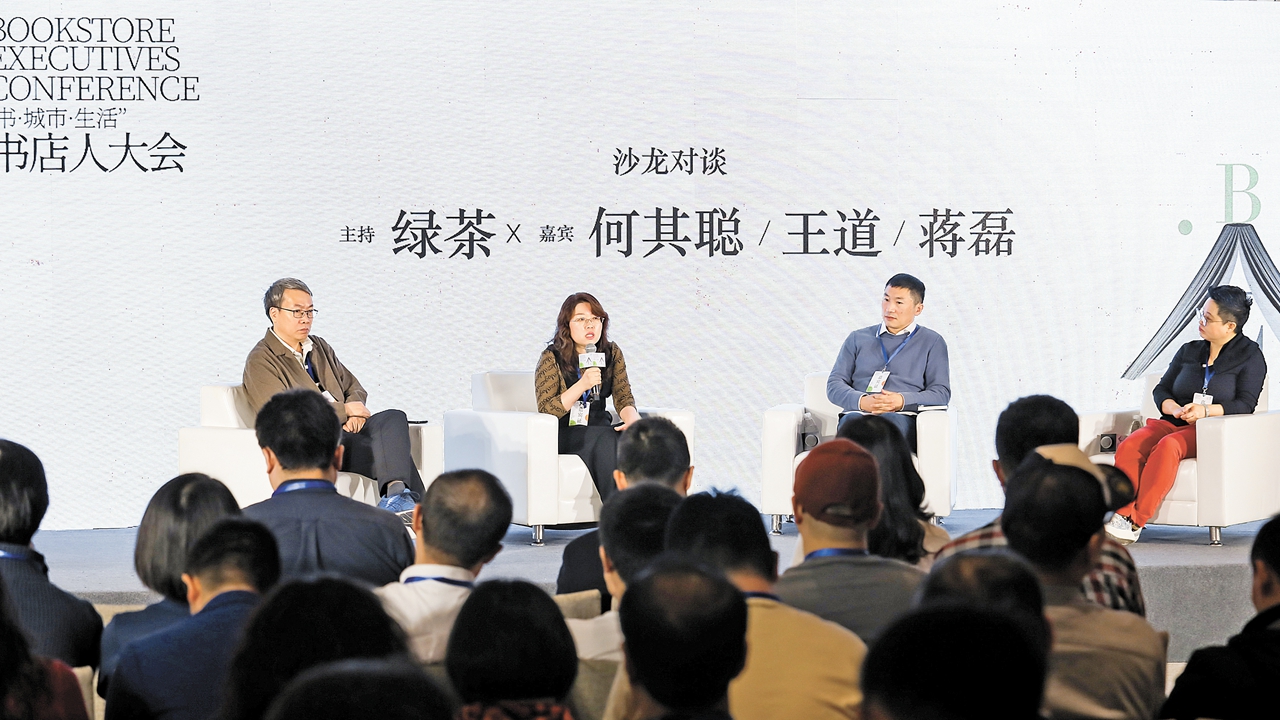
Guest speakers address the audience at the Bookstore Executives Conference held in Shenzhen on Nov. 17, a sideline event of the Shenzhen Reading Month. Photos by courtesy of the organizer
Through keynote speeches, open discussions, bookstore tours, and a roundtable talk, these major players in China’s book retail industry shared their experiences and insights on the market and its future.
These individuals, as described by guest speaker and Chinese writer Wang Dao, have long been overlooked.
“In the business world, they lack the prominence and influence that major players possess. In the realm of culture, they are not entitled to distinct works like renowned artists or bestselling authors. In the eyes of the public, they don’t command attention like political or business figures, nor do they attract online fame,” he said. “But in my opinion, these people form one of the backbones of society, connecting and supporting different sectors. They bridge culture and commerce.”
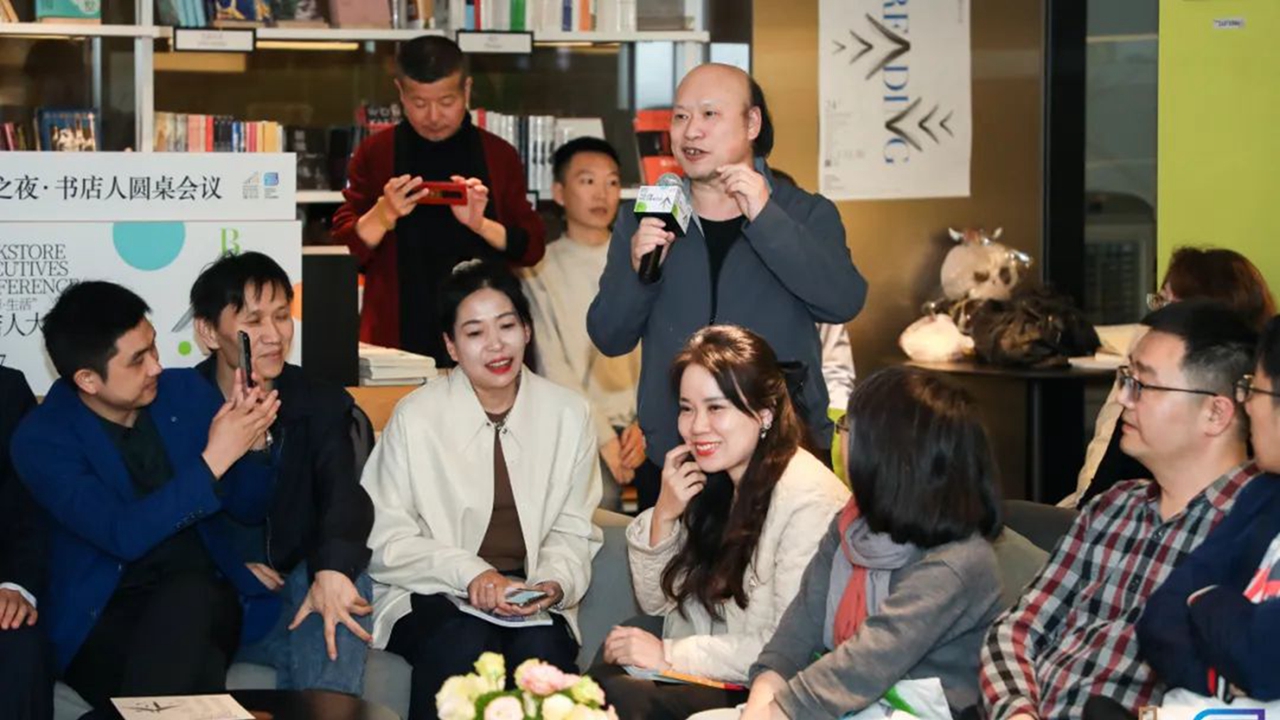
Attendees engage in a round-table discussion at the 24 Hour Book Bar at the Shenzhen Book City CBD Store on Nov. 17.
Being innovative and distinctive
Business is business. Despite the optimization of COVID-19 responses in China, the outlook for physical bookstores in 2022 was bleak. The nation’s book retail market size in 2022 decreased by 11.77% year on year, with the physical store retail book market declining by 37.22% year on year, according to a report on China’s book retail market released by Open Book, an agency offering consulting, research, and survey services in the book industry.
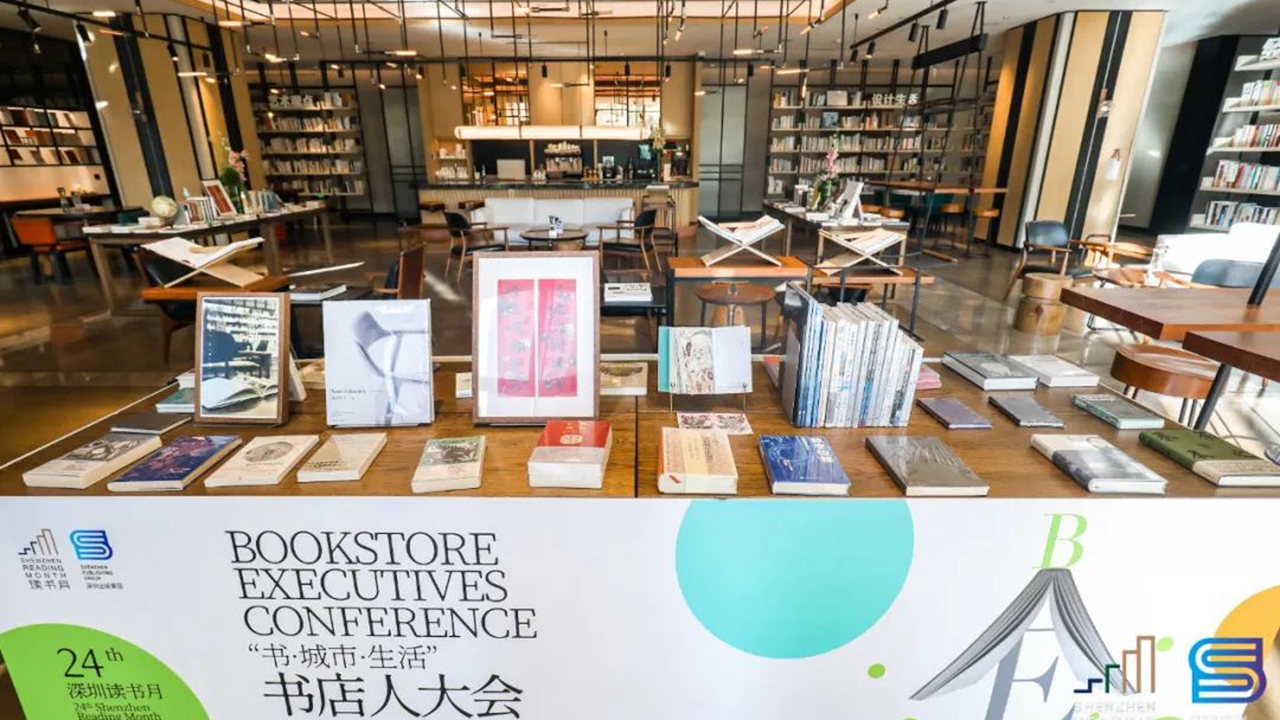
A view of the Bookstore Executives Conference at Hotel Kapok Shenzhen Luohu on Nov. 17.
Survival became the top concern for bookstore owners.
Liu Gui, a partner of the Chinese brick-and-mortar bookstore alliance Shumeng, summarized the business strategies of bookstores with distinctive characteristics in the country for the attendees. Shumeng has been conducting field research in physical bookstores in the country since 2018 and is now a leading consultancy in the book industry. Liu emphasized continual innovation in title selections as well as diverse marketing strategies. “Embedding rich cultural elements within bookstores serves to activate a diverse range of operations,” Liu said.
Following the COVID-19 outbreak, many physical bookstores in China evolved from traditional retail spaces into multifaceted establishments, blending cultural and creative offerings with features such as coffee shops, exhibition galleries, and even shared office spaces. Some went further to prioritize visual appeal with elaborate interior designs to attract the attention of young consumers seeking new experiences, such as the Zhongshuge bookstores, a chain famous for its interior design.
“Young Chinese consumers, especially the post-90s generations, want novelty,” said Liu. “They desire things that can address their emotional needs, things they can show off to their peers.” Addressing these desires and needs with creativity brings distinctiveness to bookstores, according to Liu.
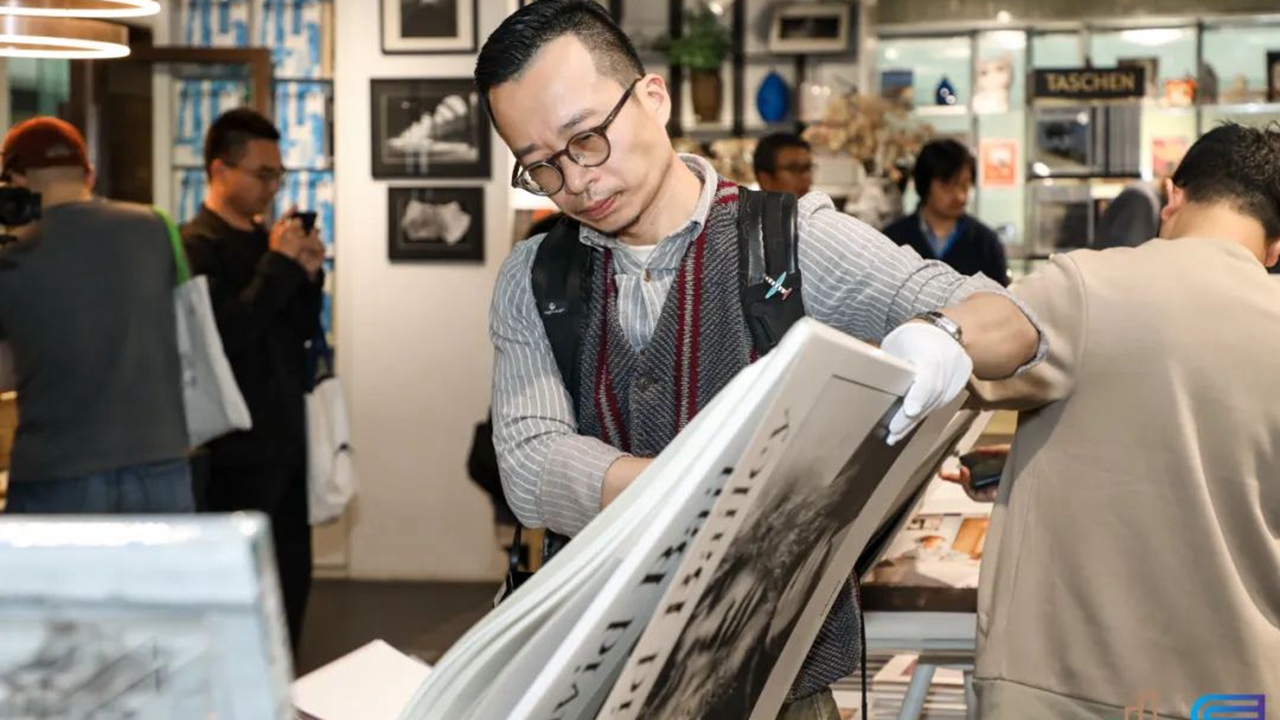
A man browses a book at Artpower Creative Space.
Zhao Qi, general manager of the Uchiyama bookstore in China, stressed the importance of reaching out to general readers through activities and social events. The bookstore, founded by Japanese Kanzo Uchiyama in Shanghai in 1917, was famous in China because it was frequented by renowned Chinese authors such as Lu Xun and Guo Moruo. The bookstore was shut down by the Kuomintang government in 1947 but reopened in Tianjin in 2021. In May, the fourth outlet of the Uchiyama bookstore opened to readers in Shenzhen at The Chinese University of Hong Kong, Shenzhen. The new bookstores are recreating the old salon atmosphere by becoming spaces for conversations and Sino-Japanese cultural exchanges.
Embracing digital era
While book sales overall are suffering, digital book retail is booming in China. In 2022, China’s book retail market generated a sales revenue of around 73.8 billion yuan (US$10.35 billion) from online channels. E-commerce and short video platforms contributed to more than 80% of the total book retail sales, a staggering 42.86% jump from the previous year, data from Open Book showed.
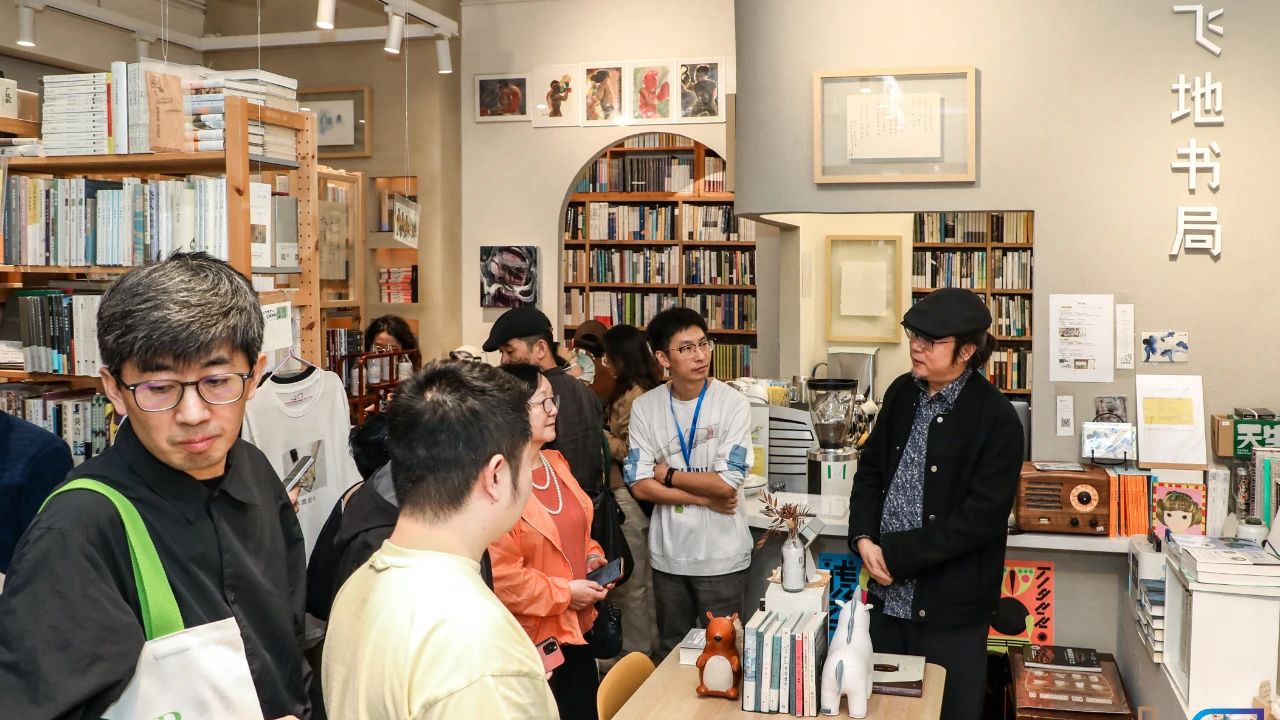
The Enclave Independent Bookstore.
Yu Bing, previously a proprietor of four brick-and-mortar bookstores in Harbin, Heilongjiang Province, has transitioned into a prominent figure in the book retail business as a live-streaming e-commerce star. During the event, she shared her narrative, emphasizing that booksellers can still thrive in the industry and that bookstore owners can evolve into exceptional content creators on social media platforms.
With 270,000 followers on Douyin, China’s foremost short-video app, Yu has garnered attention within the industry by successfully selling more than 10,000 books in a month, resulting in transactions exceeding 250 million annually.
Describing her transition from a conventional book retailer whose focus was solely on products to a customer-centric vlogger and live-streamer, Yu characterized the process as arduous yet gratifying. She noted: “I have faith in the unique abilities possessed by bookstore operators. The expansion of media formats from short videos to livestreaming is fundamentally reshaping the retail landscape in China. If these methods efficiently bring books into the lives of readers in the digital age, I believe our talents should be invested in them.”
Emotionally fulfilling endeavor
In an era defined by perpetual transformation, adaptation becomes paramount. This holds true for the bookstore industry, in which Chinese bookstore owners remain optimistic about its future.
According to industry consultant Jiang Lei, as long as the pursuit of knowledge and wisdom endures, so will the quest for books. While shifts may occur in sales channels and operational approaches, the fundamental desire for books persists.
He Qicong, an associate professor at the Beijing Institute of Culture Innovation and Communication under Beijing Normal University, likened bookstores to beacons of civilization within a city. She advocated for innovative governmental support through policies, management, and operations to accommodate bookstores that best embody a city’s character.